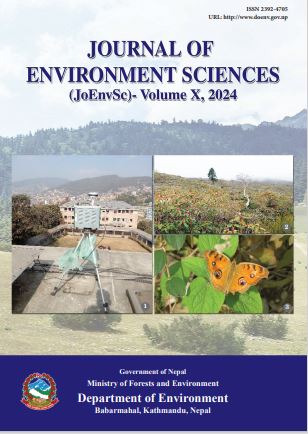Impact of Improper Shelters on Women on the Aftermath of Jajarkot Earthquake in West Rukum, Nepal
DOI:
https://doi.org/10.3126/jes.v10i1.67033Keywords:
Beneficiaries, grant, migration, volunteers, vulnerabilityAbstract
Disasters and emergencies affect each individual in different way based on age, sex, disability, community, geographic regions, etc. Women and children are disproportionately affected during and after disaster. The situation becomes pathetic when they loss their houses and live in tarpaulin tents. Lack of proper shelters influence daily life directly or indirectly viz. food and nutrition, mental and reproductive health, WASH, protection, education, etc. They often lag behind during preparedness, search and rescue, evacuation, response and recovery. The Government of Nepal has taken an initiation to make the temporary shelter of the Jajarkot earthquake, 6.4 ML, Nov 2023, affected families affected districts. For this, Government of Nepal (GoN) is providing housing grant to such affected families in two tranche amount of 25,000 NPR. This paper assesses the impact of improper shelters on earthquake affected women and their limitations to make their temporary shelters independently in West Rukum district, Karnali province of Nepal. This study is based on descriptive as well as explanatory research design. Primary sources for information collection based on questionnaire were Key Informant Interview (KII), Focus Group Discussions (FGD), household survey, field observation and interview whereas secondary sources for data collection were literatures review, articles and government offices. Both the qualitative and quantitative approaches were applied. The assessment shows that the improper shelters after earthquake disproportionately affects women. The disaster hits harder if comes to intersectionality of being marginalized, single and having disability. Need identification of such women is essential during the construction of their temporary shelters.




